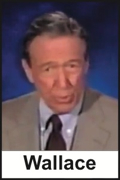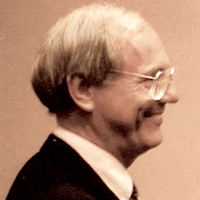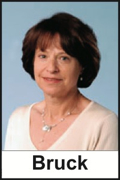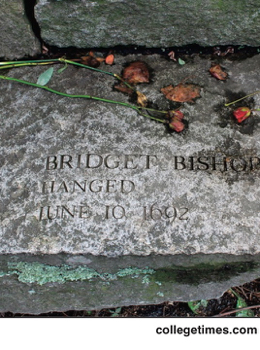Rascals case in brief
In the beginning, in 1989, more than 90 children at the Little Rascals Day Care Center in Edenton, North Carolina, accused a total of 20 adults with 429 instances of sexual abuse over a three-year period. It may have all begun with one parent’s complaint about punishment given her child.
Among the alleged perpetrators: the sheriff and mayor. But prosecutors would charge only Robin Byrum, Darlene Harris, Elizabeth “Betsy” Kelly, Robert “Bob” Kelly, Willard Scott Privott, Shelley Stone and Dawn Wilson – the Edenton 7.
Along with sodomy and beatings, allegations included a baby killed with a handgun, a child being hung upside down from a tree and being set on fire and countless other fantastic incidents involving spaceships, hot air balloons, pirate ships and trained sharks.
By the time prosecutors dropped the last charges in 1997, Little Rascals had become North Carolina’s longest and most costly criminal trial. Prosecutors kept defendants jailed in hopes at least one would turn against their supposed co-conspirators. Remarkably, none did. Another shameful record: Five defendants had to wait longer to face their accusers in court than anyone else in North Carolina history.
Between 1991 and 1997, Ofra Bikel produced three extraordinary episodes on the Little Rascals case for the PBS series “Frontline.” Although “Innocence Lost” did not deter prosecutors, it exposed their tactics and fostered nationwide skepticism and dismay.
With each passing year, the absurdity of the Little Rascals charges has become more obvious. But no admission of error has ever come from prosecutors, police, interviewers or parents. This site is devoted to the issues raised by this case.
On Facebook
Click for earlier Facebook posts archived on this site
Click to go to
Today’s random selection from the Little Rascals Day Care archives….
Click for earlier Facebook posts archived on this site
Click to go to
Today’s random selection from the Little Rascals Day Care archives….
A rare chance to watch the story unfold
 May 20, 2013
May 20, 2013
The day-care ritual-abuse era generated a wealth of words, many of which have been cited here. Aside from the epic “Innocence Lost,” however, little video evidence remains.
Just made available on our Bookshelf of Case Materials is the hour-long 1999 CBS documentary “Child Sex Scandals: Modern Day Witch-Hunt?”
Part of correspondent Mike Wallace’s “20th Century” series, it includes basic coverage of the McMartin, LIttle Rascals and Kelly Michaels day-care prosecutions, as well as the closely-akin “recovered memory” movement.
Especially salient are the 30-second comments from key combatants in the opinion arena such as Maggie Bruck, Roland Summit, Elizabeth Loftus, and Mark Pendergrast.
Psychiatrist’s theory bolstered day-care prosecutions
Feb. 2, 2019
First of two parts
The name of Dr. Roland Summit, key supporter of the McMartin Preschool prosecution, no longer resonates in psychiatry, but the “child sexual abuse syndrome” he conjured up did a lifetime’s worth of damage to its countless victims.

theawarenesscenter.org
Dr. Roland Summit
As described by Debbie Nathan (Village Voice, Jan. 12, 1990), “[Summit’s] theory about incest… argues that if there is evidence of sex abuse and a child denies it, this is only further proof that it happened and a therapist should use any means necessary to help the child talk…. If they later recant, that means they are under family pressure to protect the father and their turnabout is further proof of the crime.
“So no matter how much coercion was used to get an accusation and no matter if a child later retracted it, once Summit’s incest theory was applied, a charge of abuse became irrefutable. Child protection workers ignored the fact that this logic had little to do with day care. After all, why would children staunchly defend abuse to protect an adult who wasn’t part of the family? And if they had been so brutally attacked at school, why wouldn’t they tell their parents?
“Therapists and investigators came up with all sorts of rationales. One was the teachers threatened them by slaughtering animals and warning that the same thing would happen to their parents if they told….”
Summit wasn’t among the expert witnesses in the Little Rascals Day Care case, but his supposed syndrome warped therapists’ interpretation of every child-witness interview. And those imaginary “threatened parents” showed up in this 1995 open letter from Little Rascals parents: “Many [children are now] old enough to realize that Bob Kelly can’t work his threatened evil to kill their families.”
Next: Collusion by psychiatrist and patient
![]()
Children don’t remember, but are sure abuse happened
 May 25, 2012
May 25, 2012
“Maggie Bruck, co-author of ‘Jeopardy in the Courtroom: A Scientific Analysis of Children’s Testimony’ and a professor of psychiatry at Johns Hopkins University, says no long-term psychological studies exist that track groups of children involved in alleged sex-abuse rings, in part because of confidentiality issues.
“But Bruck has studied follow-up interviews of children involved in cases similar to the notorious McMartin preschool trial. Some kids continue to believe they were abused. Bruck suspects it’s because their families or therapists have reinforced the stories of abuse. ‘The children say they don’t remember the salient, allegedly terrifying details,’ she told me. ‘But they are sure it happened.’ ”
– From “Who Was Abused?” by Maggie Jones in the New York Times (Sept. 19, 2004)
Might the Little Rascals children be among the subjects of that follow-up research? Sorry, Dr. Bruck says predictably – “Confidential information.”
Three centuries later, witch trials remain uncomfortably relevant
 Oct. 31, 2016
Oct. 31, 2016
“Historical truths emerge only with time, after which they are ours, particularly on Halloween, to mangle.
“Early on, the Salem witch trials disappeared from the record; a hush descended over 1692 for generations. ‘The People of Salem Do Not Like to Be Questioned in Regard to the Witchery Affair’ reads a Philadelphia Inquirer headline – from 1895. It fell to others to resurrect the ‘witchcraft,’ as the South did during the debate over slavery. Then came Arthur Miller, who made off with the story, or at least a version of it.
“A lush mythology grew up around the trials, one that reassured us that these events took place in a remote land in no way resembling our own. In truth, they are deeply woven into the American fabric. They are more relevant than the lore suggests – our earliest instance of conspiratorial fantasy and reckless demonizing, of the brand of national distemper that grips us in anxious times.”
– From “Five Myths about the Salem witch trials” by Stacy Schiff in the Washington Post (Oct. 30)
Fifteen years ago today: Massachusetts officially exonerates five women hanged as witches in Salem.
![]()











0 CommentsComment on Facebook